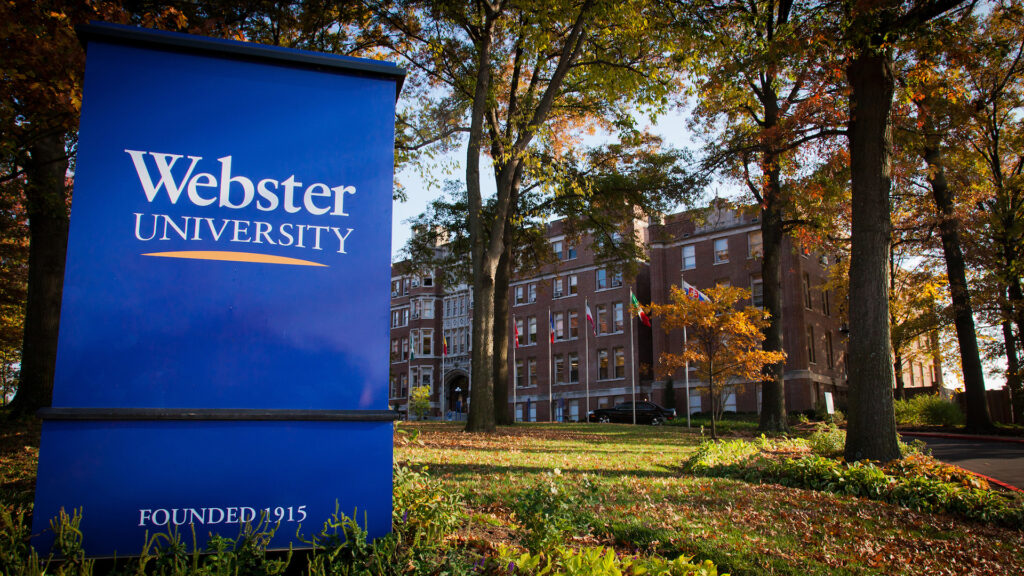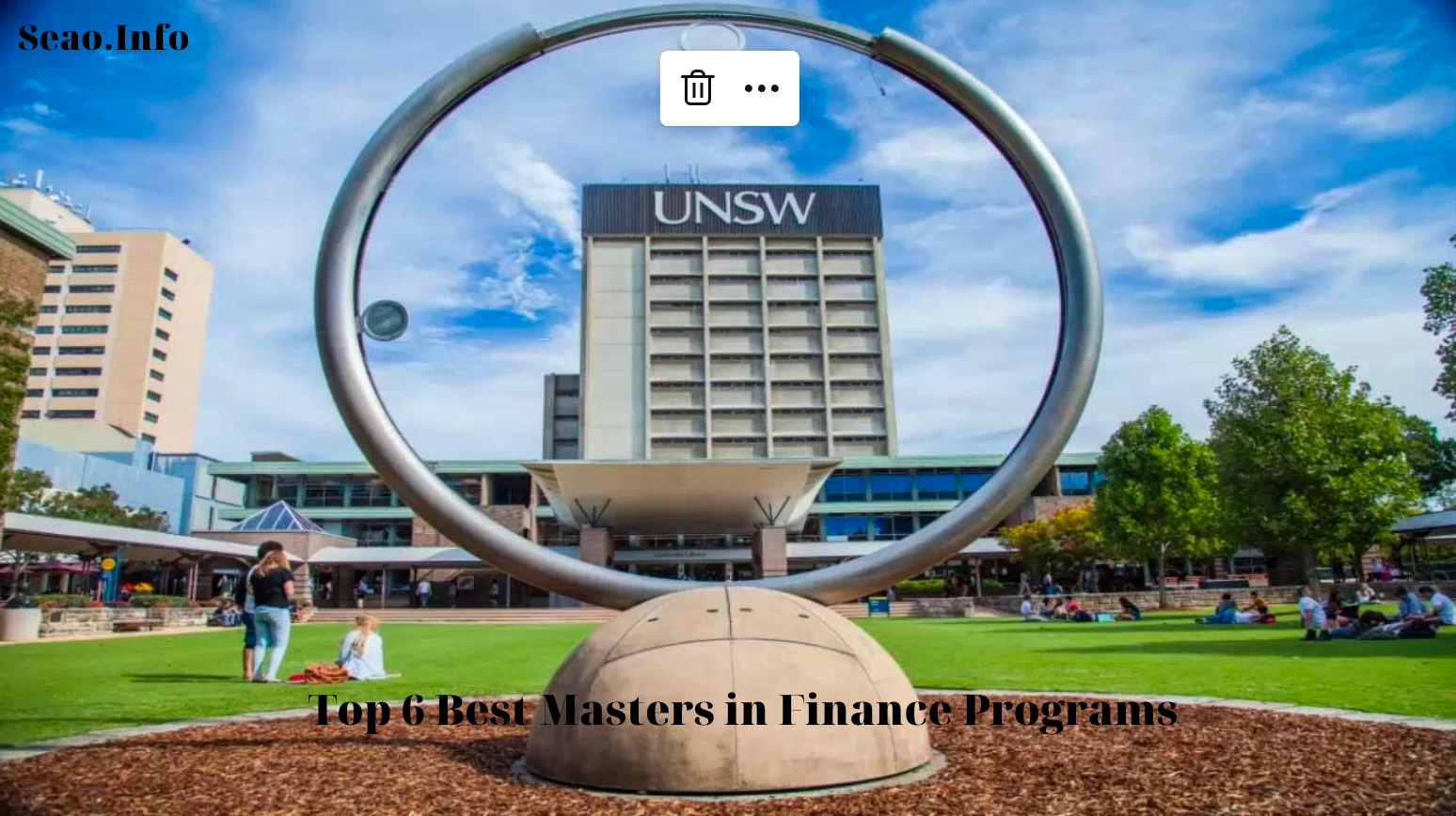Financial expertise is essential in today’s expanding and interconnected globe, from Wall Street to the World Bank. A Master’s degree in Finance acts as a link between today’s students and the world leaders of tomorrow thanks to its comprehensive courses in business, economics, accounting, and financial management. Let’s follow us to find out the best masters in finance programs in this post!
Top Best Masters in Finance Programs
Johns Hopkins University
Johns Hopkins University, which was established in Baltimore in 1876, provides business majors with a variety of degree opportunities. An online master’s in finance is currently offered by the Association to Advance Collegiate Schools of Business-accredited Johns Hopkins Carey Business School, which is designed for working professionals who can only attend classes part-time.

The usual time to finish the 54-credit online MBA with a focus on financial businesses is 2.5 years. Wealth management, corporate finance, and economics for decision-making are some of the course’s themes. The curriculum includes real-world projects that enable students to apply what they have learned to their current jobs. The curriculum needs three quick stays at the school in Baltimore, two lasting three days each and one lasting 1.5 days.
Via the Blackboard learning management system, which combines asynchronous and synchronous components, online students can access eight-week courses. The Middle States Council on Higher Education has granted Johns Hopkins University accreditation.
Columbia University in the City of New York
The fifth-oldest school of higher learning in the country, Columbia University was founded in 1754 and offers a wide range of completely online degrees while maintaining the same high academic standards. An online master’s in finance from Columbia is now available in the university’s online catalog, with a focus on engineering and research methodologies and a variety of elective possibilities.
The two-year 30-credit online master’s program prepares students for employment in fields like securities, financial management, and consulting. After completing two-course sequences in engineering techniques and quantitative research, students can specialize in their degree paths by selecting four electives.
Pricing models for financial engineering, quantitative risk modeling, and security pricing models are some topics covered in elective courses. Each candidate must have a bachelor’s degree in a technical field, a minimum GPA of 3.0, and a competitive GRE score. The Middle States Commission on Higher Education has accredited Columbia.
The University of Cambridge Judge Business School
The Judge Business School at the University of Cambridge is a brand-new participant in the QS Masters in Finance Rankings this year and is ranked sixth globally for its Master of Finance (MFin) program. With students experiencing an average pay gain of 89 percent after completing the program, raising their average salary to around US$131,821, the institution achieves a flawless grade for employability and a very good score for alumni outcomes. Nevertheless, three months after graduation, 91% of graduates had jobs.
A combination of core courses and electives make up the 12-month MFin program at the school, which was developed in collaboration with the banking and finance sector. This flexibility enables students to customize their education and develop specialized knowledge in areas like advanced corporate finance, private equity, Asian capital markets, and mergers and acquisitions.
London School of Economics and Political Science

This year’s entrant, the London School of Economics and Political Science (LSE), shares fourth place for its MSc Finance program with Oxford. With 95 percent of its 106 students hailing from countries other than the United Kingdom and representing 37 different nationalities, it receives a perfect score on the diversity indicator. With 83 percent of faculty members coming from abroad, the faculty is likewise very diverse.
Students in the MSc Finance program will gain from diversity as well as close engagement with the LSE’s Financial Markets Group and the Systemic Risk Centre, which draw top financial researchers from all over the world. Together with their academic studies, students who participate in the department’s professional development program, which begins with a pre-sessional course in September, are helped to find employment.
Harvard University
Harvard University is one of the most rigorous and all-encompassing colleges in the world. It was founded in Cambridge in 1636, making it the country’s first college. Its reach extends throughout the globe and includes a variety of online degrees provided by the Harvard Extension School, such as an online master’s in finance.
Normally, it takes two years to finish the 48-credit master’s in finance. In addition to their online studies, students take 12 credits of in-person study, either at a regular pace throughout the week or over the course of four intensive weekends. Microeconomic theory, an introduction to econometrics, and financial accounting are some of the topics covered in concentration-specific courses.
A candidate with a bachelor’s degree in a related discipline must first sign up for three prerequisite courses and receive a “B” or above. The New England Commission of Higher Education has granted Harvard accreditation.
Webster University
Webster University, which was established in 1915 as a Catholic women’s institution in Webster Grove, Missouri, now offers prestigious online degrees in the liberal arts, education, and business. A working professional can benefit from the flexibility of the school’s online master’s in finance program, which also has the potential to prepare students for advanced professional certification as chartered financial analysts or certified financial planners.
Students who enroll in the 36-credit program often finish it in two years and receive a thorough introduction to corporate finance, investments, markets, and institutions. Management accounting, financial modeling, and international finance are among the course’s themes. The learning process is completed with a research-based capstone project that incorporates important curricular subjects, like mergers and acquisitions.

The institution also offers the option for students to complete 45 credits toward a dual degree in finance and MBA. The Canvas learning management system, which combines asynchronous and synchronous modes, allows online students to access coursework. The Higher Learning Commission has granted Webster its accreditation.
Conclusion
The pursuit of internships or apprenticeships as a student in finance is also beneficial. This is especially true for pupils who don’t have extensive resumes. Before applying for a full-time career, internships can assist students to start networking and building connections in the industry by providing valuable work experience. In the corporate world, networking is essential, thus students should focus on developing connections and contacts throughout their program. You may maximize the value of your degree by attending networking events, making friends with classmates, and getting to know your lecturers.


